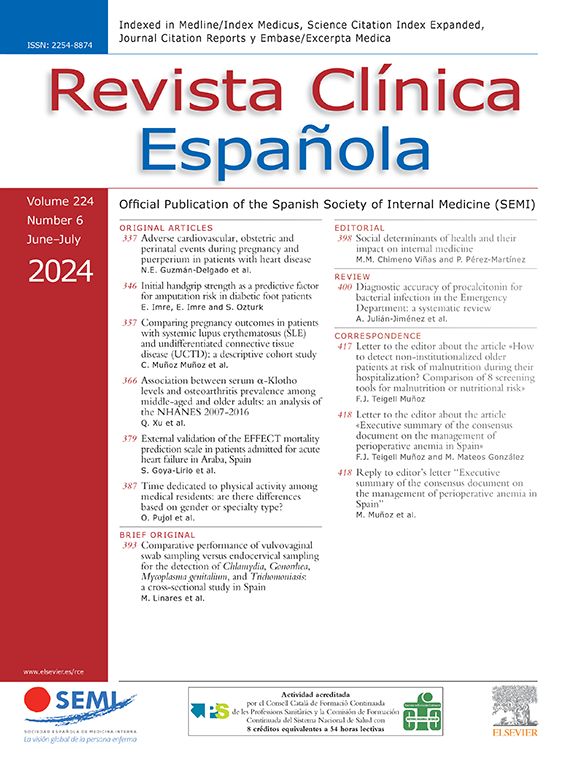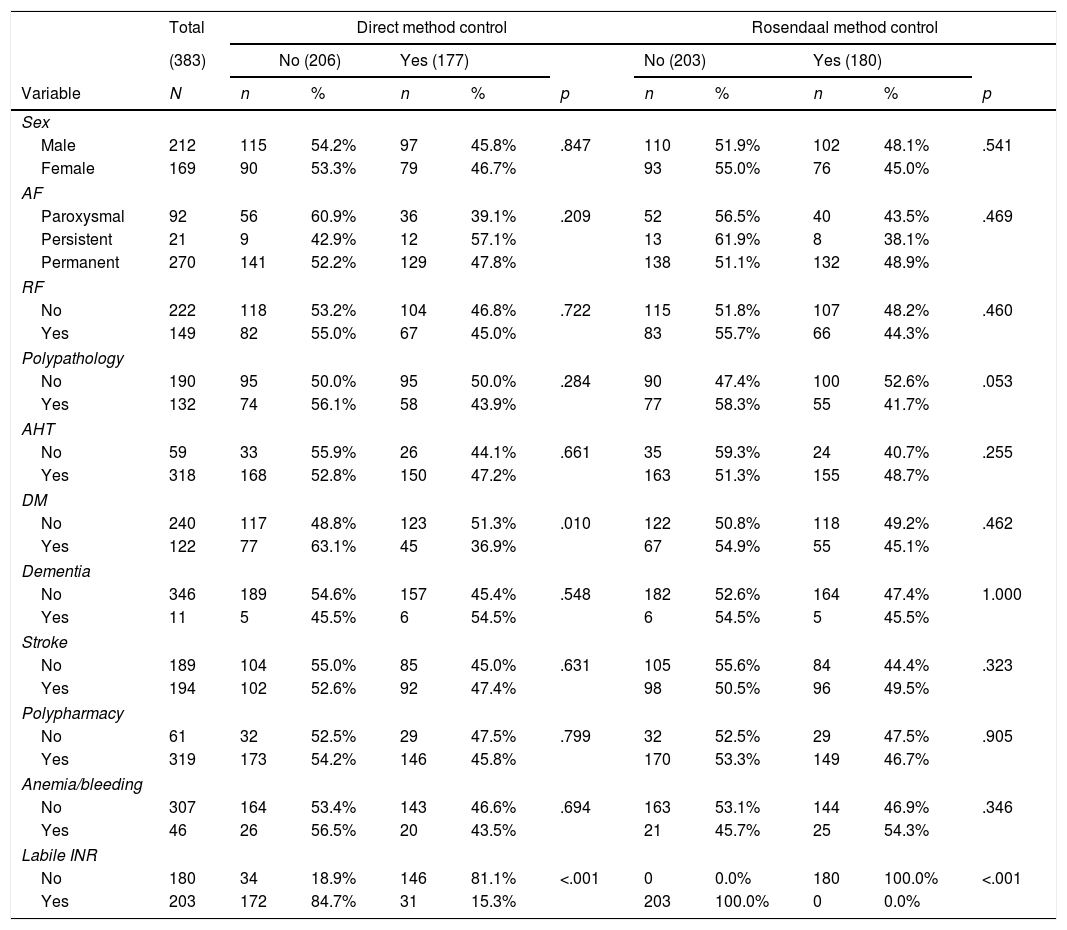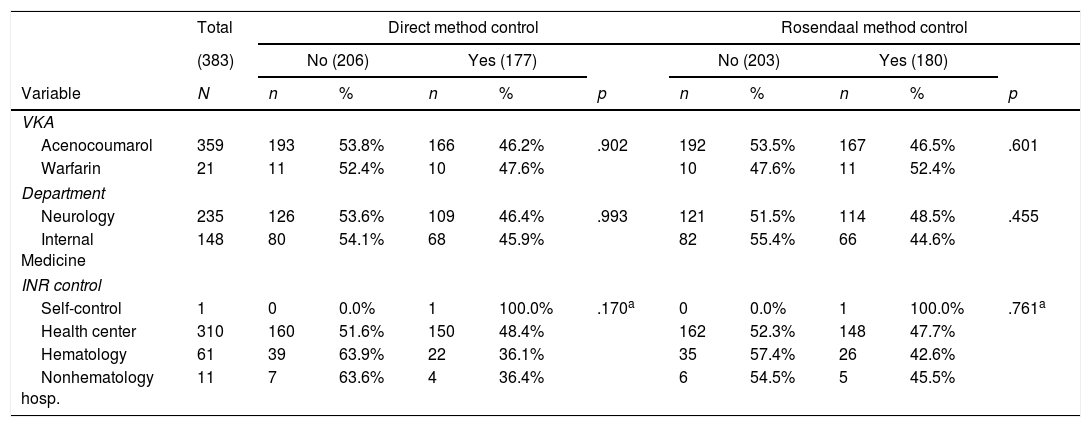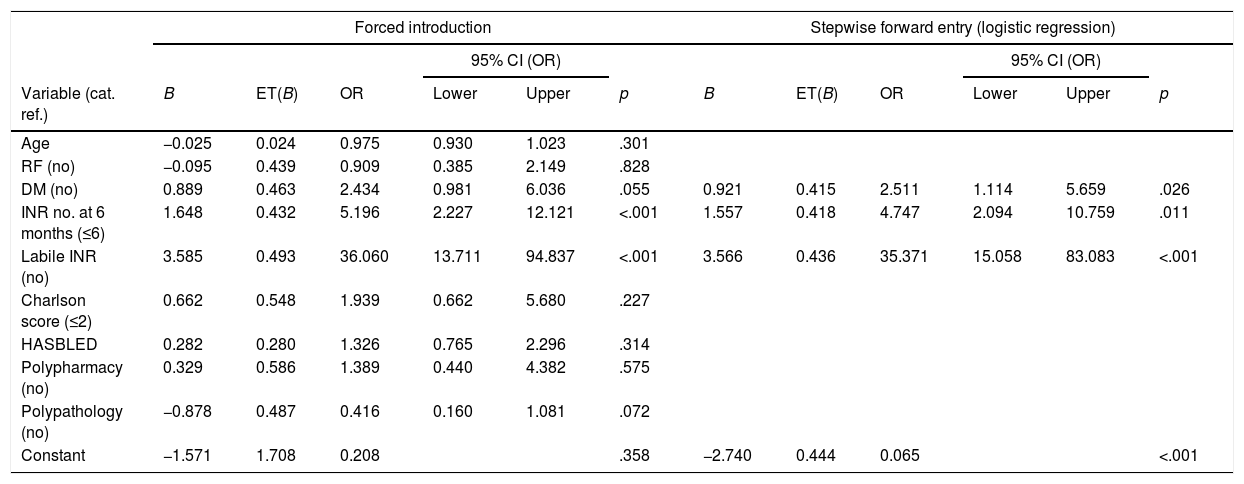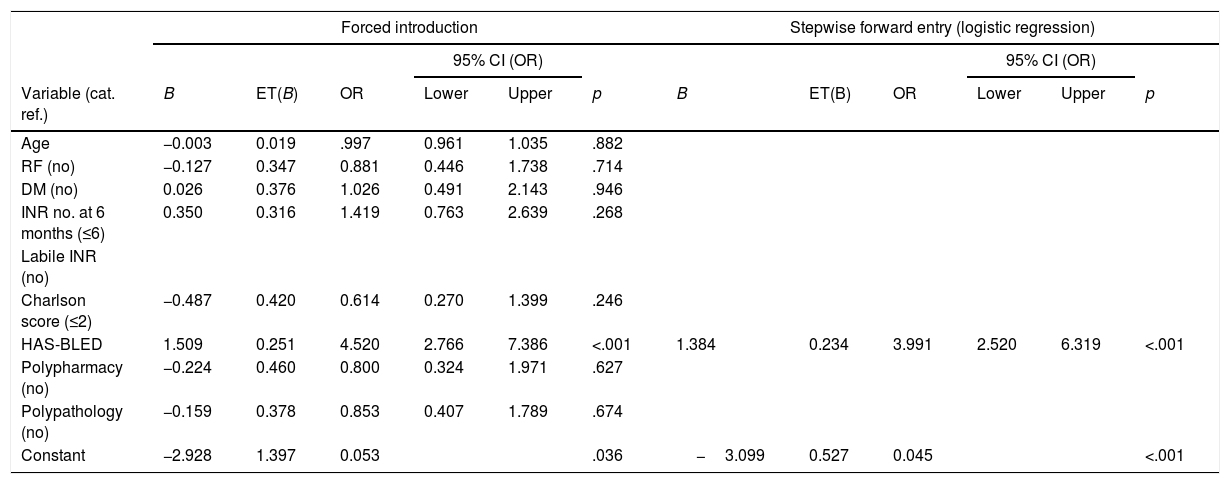To identify factors associated with poor anticoagulation control with vitamin K antagonists (VKA) among outpatients with nonvalvular atrial fibrillation (NVAF) attended in Neurology and Internal Medicine in Spain.
MethodsCross-sectional and multicenter study, from the ALADIN database, of outpatients with NVAF treated with VKA and attended in Internal Medicine and Neurology in Spain. Rates of anticoagulation control were determined with the direct and Rosendaal methods, considering data from the 6months before the inclusion.
ResultsOut of 1337 patients included in the ALADIN study, 750 were taking VKA, and complete information about INR values in the last 6months was available in 383 patients. Mean scores of Charlson Index, CHADS2, CHA2DS2-VASc and HAS-BLED were 1.94±1.54; 3.10±1.26; 4.63±1.54, and 2.20±0.90, respectively. 46.2% and 47.0% of patients had an adequate anticoagulation control according to the direct and Rosendaal methods, respectively. Inadequate anticoagulation control according to the direct method was associated with diabetes (OR: 2.511; 95% CI: 1.144–5.659), prior labile INR (OR: 35.371; 95% CI: 15.058–83.083) and the determination of >6 INR controls in the last 6months (OR: 4.747; 95% CI: 2.094–10.759), and according to the Rosendaal method, with prior labile INR (p<.001) and HAS-BLED score (OR: 3.991; 95% CI: 2.520–6.319).
ConclusionsDespite the high thromboembolic risk, only a little more than a half of patients were well controlled. Factors associated with poor anticoagulation control were diabetes, labile INR, >6 INR controls and HAS-BLED.
Identificar los factores asociados con el mal control de la anticoagulación con antagonistas de la vitamina K (AVK) en pacientes con fibrilación auricular no valvular (FANV) atendidos en consultas de Neurología y Medicina Interna de España.
MétodosEstudio transversal, multicéntrico, anidado en el estudio ALADIN, de sujetos con FANV, tratados con AVK, atendidos en consultas de Medicina Interna o Neurología de España. El grado de control de la anticoagulación se estudió mediante el método directo y el de Rosendaal, considerando los 6 meses previos a la inclusión.
ResultadosDe los 1.337 pacientes incluidos en ALADIN, 750 estaban tratados con AVK, con información completa sobre el INR de los últimos 6meses en 383 pacientes. Las puntuaciones medias del índice de Charlson, CHADS2, CHA2DS2-VASc y HAS-BLED fueron 1,94±1,54; 3,10±1,26; 4,63±1,54 y 2,20±0,90, respectivamente. El 46,2% y el 47,0% de los pacientes presentaban un control adecuado de la anticoagulación por los métodos directo y Rosendaal, respectivamente. El control inadecuado de la anticoagulación se asoció por el método directo con diabetes (OR: 2,511; IC 95%: 1,144-5,659), antecedentes de INR inestable (OR: 35,371; IC 95%: 15,058-83,083) y la realización de >6 controles en los últimos 6 meses (OR: 4,747; IC 95%: 2,094-10,759), y por el método de Rosendaal, con los antecedentes de INR inestable (p<0,001) y con HAS-BLED (OR: 3,991; IC95%: 2,520-6,319).
ConclusionesPese al alto riesgo tromboembólico, sólo estaban bien controlados algo más de la mitad. Los factores asociados al mal control de la anticoagulación fueron la diabetes, INR inestable, >6 controles de INR y el HAS-BLED.
Article
Diríjase desde aquí a la web de la >>>FESEMI<<< e inicie sesión mediante el formulario que se encuentra en la barra superior, pulsando sobre el candado.

Una vez autentificado, en la misma web de FESEMI, en el menú superior, elija la opción deseada.

>>>FESEMI<<<

